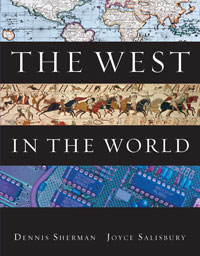1 A) nationalism. B) the alliance system. C) military buildup. D) communism. 2 A) Austria and Germany B) Russia and Austria C) Austria and Britain D) France and Russia 3 A) Austria B) Germany C) Russia D) France 4 A) successfully carried out the Schlieffen Plan. B) captured Paris. C) drove back the Russians. D) were pushed back by the French and stuck with a two-front war. 5 A) decisive German victories. B) decisive Allied victories. C) major movements of the front line. D) massive casualties. 6 A) Austria B) Italy C) Mexico D) Brazil 7 A) France, Russia, Great Britain, and the United States. B) Italy, Great Britain, the United States, and Russia. C) Great Britain, the United States, Italy, and France. D) Czechoslovakia, Great Britain, Italy, and the United States. 8 A) Bosnia B) Yugoslavia C) Poland D) Czechoslovakia 9 A) Woodrow Wilson B) Georges Clemenceau C) David Lloyd George D) Vittorio Orlando 10 A) created new nation-states. B) made no provision for economic restoration of Europe. C) included a "war guilt" clause. D) was a "hard" rather than a "just" peace. 11 A) Nicholas II. B) Leon Trotsky. C) Alexander II. D) Sergei Witte. 12 A) the formation of soviets by workers. B) the creation of a provisional government. C) mutinies by soldiers and sailors. D) peasant revolts. 13 A) mobilize Russian troops. B) take personal command of the Russian army. C) issue reforms. D) order guards to fire on a demonstration of workers. 14 A) fired on the crowds. B) took Nicholas and his family as prisoners. C) demanded to return to the front line in order to stop the German army. D) were reluctant to fire on the crowds, and some actually joined the demonstrators. 15 A) a Duma B) a soviet C) a provisional government D) a constitutional monarchy 16 A) seizing land. B) marching on Petrograd in support of the tsar. C) heeding provisional government requests to wait for land-redistribution legislation. D) trying to enlist in the armed forces. 17 A) a mass workers' party. B) backing the provisional government during this chaotic period. C) in support of fighting the war until Germany was defeated. D) an elite group of dedicated Marxist revolutionaries capable of leading the masses. 18 A) a massive popular demonstration. B) a coup led by General Kornilov. C) a German offensive. D) a takeover by the Bolshevik leadership. 19 A) soviet. B) Duma. C) Constituent Assembly. D) Second Congress. 20 A) the Treaty of Versailles. B) the Treaty of Brest-Litovsk. C) his agreement to be returned to Russia in 1917. D) issuance of Order Number 1. 21 A) Russia B) France C) Austria-Hungary D) Germany 22 A) They relied on the free market. B) They increased the employment of women. C) They developed synthetic substitutes for needed commodities. D) They relied on forced labor.





